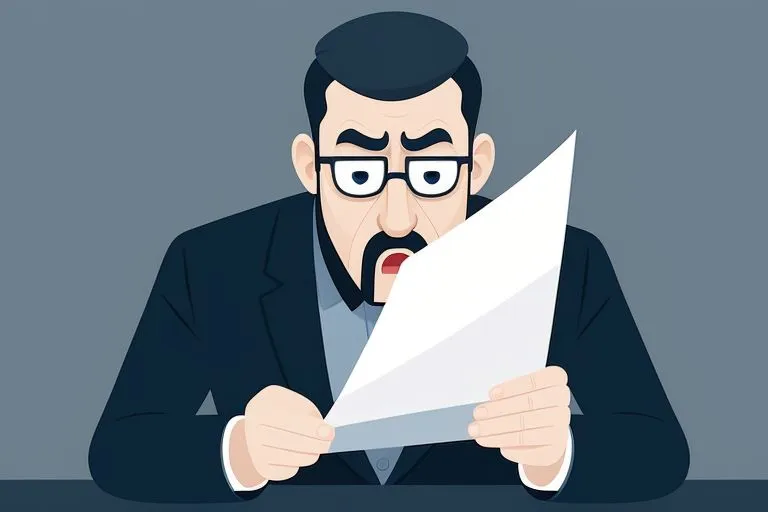When it comes to dealing with the IRS, understanding the consequences of not paying your taxes or penalties is crucial. This article will simplify the complexities and provide clear answers to the question: what happens if you don’t pay IRS penalty? Whether you’re overwhelmed with tax obligations or just seeking clarity, we’ve got you covered.

Try MileageWise for free for 14 days. No credit card required!
Dashboard
Understanding IRS Penalties
The IRS imposes penalties for various reasons, including:
- Failure to file: If you don’t file your tax return on time, you may incur a penalty.
- Failure to pay: If you file but don’t pay your taxes owed, a penalty for not paying will also apply.
- Accuracy-related penalties: Errors or discrepancies on your tax return can lead to additional penalties.
These penalties can accumulate quickly, leading many taxpayers to wonder what happens if they ignore paying IRS penalties. Let’s break it down.
Immediate Consequences of Not Paying IRS Penalties
Ignoring IRS penalties can lead to several immediate consequences:
1. Increased Penalties and Interest
When you fail to pay your IRS penalties, the amounts owed do not stay stagnant. The IRS adds interest and additional penalties on top of your original debt. These can accumulate over time, making the situation worse than it initially was.
Here is some info if you want to manage your penalty payments online.
2. Tax Liens
If you continue to ignore your penalties, the IRS may file a tax lien against your property. A lien is a legal claim against your assets, which means that the IRS has the right to take your property to satisfy the debt. This can severely impact your credit score and ability to secure loans in the future.
3. Wage Garnishment
Another consequence of not paying IRS penalties is wage garnishment. The IRS can legally take a portion of your paycheck to cover unpaid taxes and penalties. This can create financial strain and make it even harder to meet your living expenses.
To understand penalties more please read our post about: What is the maximum IRS penatly.
Long-Term Implications of Ignoring IRS Penalties
Beyond the immediate consequences, there are long-term implications to consider:
1. Loss of Tax Refunds
If you owe IRS penalties, any future tax refunds you may be entitled to can be intercepted and applied to your existing debt. This means that you won’t receive the refund you may have been counting on.
2. Inability to Obtain Certain Licenses
Unpaid IRS penalties can affect your ability to obtain certain licenses, such as a business license or professional licenses. Many states require proof of tax compliance for licensing, and outstanding penalties can hinder your ability to operate legally.
3. Legal Action
In extreme cases, the IRS may take legal action against you. This could involve court proceedings, which can be complicated and stressful. The IRS has the authority to take you to court to recover the money you owe.
Options If You Can’t Pay IRS Penalties
If you find yourself unable to pay your IRS penalties, there are options available to ease your burden:
1. Payment Plans
The IRS offers installment agreements that allow you to pay your tax debt over time. This can help you manage your payments without incurring further penalties.
2. Offer in Compromise
An offer in compromise allows you to settle your tax debt for less than the full amount owed. This option is often available for individuals who cannot pay their debt in full or face financial hardship.
3. Penalty Abatement
In certain circumstances, you may qualify for penalty abatement. This means the IRS may forgive certain penalties if you can show reasonable cause for not paying your taxes on time.
More info about this in this post: Is IRS penalty tax deductible?
Steps to Take if You Receive a Penalty Notice
If you receive a notice from the IRS regarding penalties, it’s essential to take action. Here’s what to do:
- Read the Notice: Understand the reason for the penalty and the amount due.
- Contact the IRS: If you believe the penalty is unjust, contact the IRS to discuss your situation.
- Make a Payment Plan: If you can’t pay in full, consider setting up a payment plan.
- Document Everything: Keep records of all communications with the IRS and any payments made.
Conclusion
In summary, not paying your IRS penalties can lead to serious financial consequences, including increased penalties, tax liens, wage garnishments, and even legal action. However, if you find yourself in this situation, there are options available to help you manage your tax debt. Always remember that communicating with the IRS and seeking assistance can lead to a resolution.
Understanding what happens if you don’t pay IRS penalty is vital in navigating your financial responsibilities. Taking proactive steps can help mitigate the situation and lead to a more manageable resolution.


